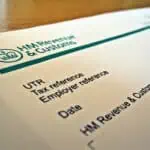What You Need to Know About Company Car Taxation
Reading Time:
Many employers have seen the benefit of providing a company car; this can be a great perk for both employers and employees as they can be utilised for both private and personal use. However, there are tax consequences involved, which we will discuss further in this blog.
Company car overview
If your employer provides you with a company car as a perk of working for them, it is considered a Benefit in Kind (BiK) by HMRC. Even if the only individual car use is for commuting to and from work, you’ll need to pay tax.
Benefit-In-Kind (BIK): benefits received by an employee in addition to a salary, such as using a company vehicle.
Factors that Influence tax payable
Your total tax due for your company car will be influenced by the following:
- Sale value as specified by the car’s manufacturer (P11D value).
- How much money do you make per year?
- The type of fuel and how much carbon dioxide it emits.
Also Read: Advantages & Disadvantages Onsite & Offsite Work
If your car runs on diesel, you’ll have to pay an extra 4%, but if it runs on fuel or electricity, you won’t have to pay anything extra.
Company car tax band
To determine how much tax you’ll owe on your company car, you’ll need to know its “company car tax band.”
The table below displays the BIK tax bands depending on your vehicle’s CO2 emissions for the current tax year.
Non-electric cars for the tax year 2022/23
NEDC* %: New European Driving Cycle Procedure
WLTP%:Worldwide Light Vehicle Test
| CO2 emissions g/km | Electric mileage range | NEDC* % | WLTP** % |
|---|---|---|---|
| 0 | – | 2 | 2 |
| 1 to 50 | 130 and above | 2 | 2 |
| 1 to 50 | 70 to 129 | 5 | 5 |
| 1 to 50 | 40 to 69 | 8 | 8 |
| 1 to 50 | 30 to 39 | 12 | 12 |
| 1 to 50 | less than 30 | 14 | 14 |
| 51 to 54 | – | 15 | 15 |
| 55 to 59 | – | 16 | 16 |
| 60 to 64 | – | 17 | 17 |
| 65 to 69 | – | 18 | 18 |
| 70 to 74 | – | 19 | 19 |
| 75 to 79 | – | 20 | 20 |
| 80 to 84 | – | 21 | 21 |
| 85 to 89 | – | 22 | 22 |
| 90 to 94 | – | 23 | 23 |
| 95 to 99 | – | 24 | 24 |
| 100 to 104 | – | 25 | 25 |
| 105 to 109 | – | 26 | 26 |
| 110 to 114 | – | 27 | 27 |
| 115 to 119 | – | 28 | 28 |
| 120 to 124 | – | 29 | 29 |
| 125 to 129 | – | 30 | 30 |
| 130 to 134 | – | 31 | 31 |
| 135 to 139 | – | 32 | 32 |
| 140 to 144 | – | 33 | 33 |
| 145 to 149 | – | 34 | 34 |
| 150 to 154 | – | 35 | 35 |
| 155 to 159 | – | 36 | 36 |
| 160 to 164 | – | 37 | 37 |
| 165 to 169 | – | 37 | 38 |
| 170 and above | – | 37 | 39 |

Company car tax calculation
You can follow these steps to calculate company car tax:
Step 1:
Find the P11D value for your company car. That includes the price of the vehicle, delivery fees, and the first year’s vehicle tax.
Step 2:
Simply multiply the BIK rate for your vehicle by the P11D.
Step 3:
Then, multiply that number by the income tax rate that applies to you.
Example: Company car tax calculation
Your Audi has a P11D value of £31,000
The car emission is around 135g/km = 32% (refer to table above)
£31,000 X 32%= £9920 (Taxable amount)
Let’s assume that you are a basic taxpayer (You pay 20% income tax)
£9920 x 20% = £1984
Still unsure?
Calculate your company car tax using theHMRC calculator
How can I save on tax?
The government is not only trying to encourage individuals to purchase electric cars, but they are also actively working hard to ensure that the tax is significantly less than with petrol and diesel cars.
To give you an idea of how much you might anticipate spending in taxes, we’ve broken down the various vehicle categories as follows:
| Car | CaCO2 Emissions | Electric Range | Brand new value Approximately | Tax percentage | Diesel additional tax | Total Tax | Taxable amount | |
|---|---|---|---|---|---|---|---|---|
| BMW iX3 | Full electric | 0 | £60,000 | 2% | 2% | £1,200 | ||
| BMW | PHEV – Plug-in hybrid | 46g/km | 30 | £60,000 | 12% | 12% | £7,200 | |
| BMW | Petrol | 188g/km | N/A | £60,000 | 37% | 37% | £22,200 | |
| BMW | Diesel | 133g/km | N/A | £60,000 | 31% | 4% | 35% | £21,000 |
The table above shows that a fully electric car’s tax savings is significantly lower than a hybrid, petrol, or diesel car.
The bottom line
You must consider several factors when considering whether to opt for an electric, hybrid, petrol, or diesel car. One of them is the tax implications. Your income tax band plays a part in the payable tax for the car, so it’s important there are no surprises.
Fusion Accountants are experts in tax advisory services and can help you understand what you will pay for your company car and how it could affect your personal finance.
Also Read: How to write an effective business plan for your startup






